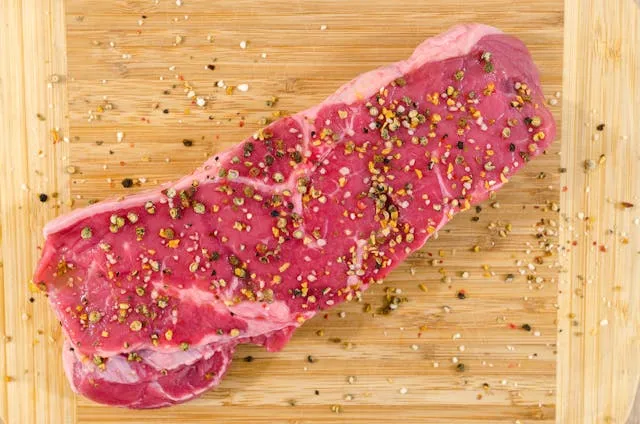How To Talk To Your Butcher And Get The Perfect Cut Every Time?

Walking into a butcher shop can be an exciting experience, especially if you appreciate quality meat and personalized service. But knowing how to communicate effectively with your butcher can take that experience to another level. Whether you’re preparing a sunday roast, a backyard barbecue, or a special dinner, understanding how to ask for what you need ensures you walk away with the perfect cut every time. Building a good relationship with your butcher is like having a secret weapon in the kitchen—they know how to make every meal exceptional. At Littleton’s Best Meat Market, customers enjoy more than just premium cuts—they benefit from expert guidance and personalized service that help them choose and cook their meat with confidence.
Also Read: Why Birthday Greeting Ecards Are Replacing Traditional Paper Cards
Start With Clarity About Your Meal
Before stepping up to the counter, have a clear idea of what dish you’re preparing. Different cooking methods require different cuts, and your butcher can only help you best if they know what you plan to do with the meat. For example, grilling calls for tender cuts like ribeye, sirloin, or pork chops, while slow-cooked meals benefit from tougher cuts like chuck, shoulder, or brisket.
Instead of simply asking for “steak,” mention how you intend to cook it. Saying, “I’m planning to pan-sear this for a quick dinner,” or “I’m slow-roasting this over the weekend,” gives your butcher context. This information helps them recommend the most suitable cut and even offer tips on how to prepare it.
Ask Questions And Show Interest
Butchers are experts in their craft, and most love sharing their knowledge. In addition to gaining more knowledge, asking questions fosters rapport. Try asking things like:
- What cut would you recommend for this recipe?
- How long should I cook this cut for the best flavor?
- Is this meat grass-fed, organic, or locally sourced?
- Can you trim or portion it for me?
You’ll be surprised how much insight a short conversation can provide. Butchers can also suggest affordable alternatives to popular cuts that deliver equal or even better flavor. For example, if ribeye is out of your budget, they might recommend a flat iron or chuck eye steak that performs beautifully on the grill.
Learn The Language Of Meat
Knowing a few basic meat terms can make your conversation smoother. Terms like “marbling,” “bone-in,” “trimmed,” or “fat cap” are part of a butcher’s vocabulary. The term “marbling” describes the white fat strands that add flavor and tenderness to meat. Bone-in cuts retain more moisture and flavor during cooking, while trimmed cuts are leaner and easier to prepare. Understanding these terms allows you to explain your preferences clearly and ensures you get exactly what you want.
Don’t Be Afraid To Request Custom Cuts
One of the biggest advantages of buying from a butcher shop rather than a supermarket is customization. If you need a specific thickness for grilling steaks or want smaller portions for family meals, your butcher can handle that with precision. Don’t hesitate to ask for adjustments—cutting to a certain thickness, removing excess fat, or leaving the bone in can all change how your dish turns out.
If you’re cooking for a crowd or trying a new recipe, you can even bring the recipe with you. Your butcher will understand exactly what you need and might even recommend tweaks that make the dish even better.
Build A Relationship
Regular customers often receive the best service because their butchers get to know their tastes and cooking habits. When you visit frequently, your butcher can anticipate your preferences and even set aside special items they know you’ll love. A good relationship also means you’ll get honest advice—if a certain cut isn’t fresh or ideal for your plan, a trusted butcher will tell you so.
You can show appreciation by thanking them, leaving positive feedback, or simply being friendly and respectful during your visits. The more you engage, the more likely you’ll get the perfect recommendation every time.
Take Advantage Of Expert Tips
Butchers don’t just cut meat—they cook it, too. Many have years of experience and are happy to share insider cooking advice. They might tell you how long to rest your steak after grilling, how to marinate a tough cut, or how to store meat properly to extend freshness. These small details can make a big difference in how your meal turns out.
Final Thoughts
Knowing how to talk to your butcher is an art that enhances your cooking experience and helps you get the most value for your money. When you communicate clearly, ask thoughtful questions, and build a relationship, you turn every visit into a learning opportunity. Don’t just order meat the next time you visit your neighborhood store; strike up a discussion instead.






